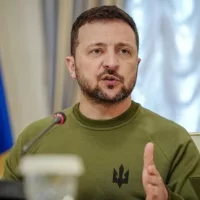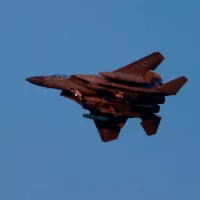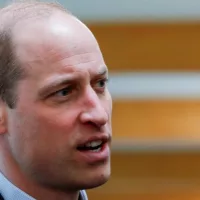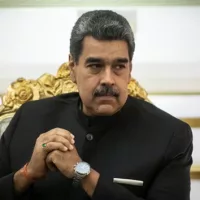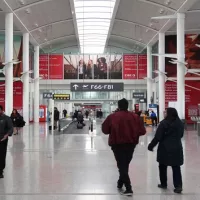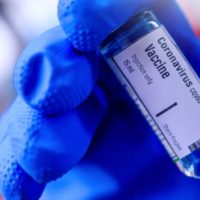
simon2579/iStockBy PATRICK REEVELL, ABC News
(MOSCOW) — President Vladimir Putin said Russia has become the first nation to approve a COVID-19 vaccine, effectively triumphing in what some around the globe have compared to the Space Race.
But while Putin said the vaccine, named Sputnik V after the world’s first satellite, has “passed all necessary tests,” many experts have said the drug hasn’t yet been subjected to rigorous tests to prove it’s effective — or, more crucially, safe — for large-scale use. Although potentially promising, the vaccine appears to be at the same stage, or even behind, others under development.
Russia’s health ministry approved the vaccine just two months after trials began, and the ministry said it plans to start administering dosages to front-line workers such as medical staff and teachers by the end of this month. Mass voluntary vaccinations, according to the ministry, could begin by October.
Putin told officials at a televised meeting that he believed the vaccine “forms strong immunity” and was confident in it because it had been administered to his adult daughter.
“I know that it works quite effectively, forms strong immunity, and, I repeat, it has passed all the needed checks,” Putin added.
But the drug is far from passing tests that would allow it to be recognized internationally.
While the most advanced vaccine efforts now are moving to test tens of thousands of volunteers in final-phase clinical trials, aka Phase III trials, the vaccine approved by Russia has so far been tested on fewer than 100 people.
Russian authorities said they plan to begin a final Phase III trial with “thousands” of volunteers, but some scientists have expressed fear Russia is putting national prestige ahead of safety.
The Moscow-based Association of Clinical Trials Organizations, a trade body representing the world’s top drugmakers in Russia, this week appealed to the health ministry to postpone approval until the final trial had been successfully completed.
“It hasn’t even completed tests with the participation of even a hundred people, not to mention the several thousands of participants accepted in Phase III,” the letter said, requesting the ministry postpone approval until the drug passed “all stages of clinical development.”
“It is during this phase,” the letter continued, “that the main evidence of a vaccine’s efficacy is collected, as well as information on adverse reactions that could appear in certain groups of patients: people with weakened immunity, people with concomitant diseases and so forth.”
Kirill Dmitriev, head of Russia’s Direct Investment Fund, which is overseeing the vaccine development, told ABC News on Monday he believed the drug’s approval was a “great step for humanity forward.”
By the end of the year, he added, Russia could produce 200 million doses — 500 million within 12 months — and he’s already received requests from abroad to produce it.
The vaccine, developed by Moscow’s state Gamaleya Research Institute, is based on a similar principle to a promising vaccine from Oxford University and AstroZeneca that’s in Phase III. Scientists have genetically modified another type of virus, called an adenovirus, to give it the tell-tale spike proteins of the coronavirus. In theory, it will produce an immune response from the body that also can target the real virus.
The new Russian vaccine is based on two previous vaccines developed by the institute for Ebola as well as that for another coronavirus that causes Middle Eastern Respiratory Syndrome, or MERS.
Between June and July, the vaccine passed early Phase I/II clinical trials, designed to prove efficacy and detect serious side effects, involving about 70 volunteers. After that, a Phase III trial with tens of thousands of volunteers normally would be required for approval.
U.S. scientists and experts in Russia had already questioned the size of Russia’s planned Phase III trial, which is said to include only 1,600 to 2,000 individuals. By comparison, those developing the Oxford vaccine are seeking to test on 50,000 volunteers, while Pfizer is recruiting 30,000.
“I think in the United States, we would demand a much bigger trial to be confident that the vaccine was safe,” Dr. Paul Offit, a co-inventor of a vaccine against the rotavirus and a professor at the Perelman School of Medicine at the University of Pennsylvania.
Russia has yet to publish data from earlier trials and there have been no peer reviews. Dmitriev said data would be published in August.
All leading vaccine projects are being conducted at unprecedented speeds, condensing testing processes that normally take years into just months. In the United States, Operation Warp Speed gave federal permission to drugmakers to begin mass producing potential vaccines as trials were ongoing. The hope is to have a ready supply on hand when one or more are approved.
Given the speed with which Russia rushed through its vaccine, it’s unlikely regulators in Western nations will accept the drug without additional research backing it.
Dmitriev said the first groups given the vaccine will be carefully monitored for side effects and that he and his family had already received vaccinations. He said he had a slight temperature for a few days, while others who’ve taken it reported brief and mild flu-like sympotoms. After a second booster shot, Dmitriev said he developed double the antibodies seen in the typical novel coronavirus patient and that he retained them two months later.
Dmitriev defended the decision to approve Sputnik V before completing trials by saying that the ministry has more confidence in its safety because it’s based on the previously approved Ebola vaccine.
But that Ebola vaccine has been approved only for emergency use in Russia and not endorsed by the World Health Organization, and many scientists are skeptical of the relevance of a previous vaccine’s trial results on a current one.
Dmitriev asked other nations to keep an open mind and “basically think about the actual technology and not about the political biases around that technology. We are not forcing this vaccine on the U.S. or any other country.”
ACTO, the pharmaceutical trade body, said that however understandable a rush is to create a vaccine, it’s unfair for ordinary Russians to assume so much of the risk.
“Accelerated registration doesn’t make Russia a leader in this race,” the group wrote in its letter, “it just subjects to unneeded risk the final consumers of the vaccine — the citizens of Russian Federation.”
Copyright © 2020, ABC Audio. All rights reserved.






